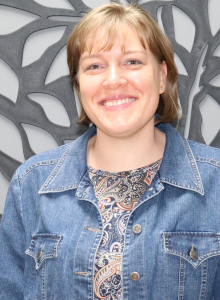Share This Story, Choose Your Platform!
Discover the Gifts of Counselling: Take Your Step Towards Healing, Growth and Hope.
Do you ever feel like life is too much for you to bear? Is something weighing you down, but you just don’t know who to share it with?
Have you thought about reaching out to a counsellor? While it could be scary, difficult and maybe even painful at times, starting personal counselling can be a journey of healing, growth and hope. This journey offers some valuable gifts along the way; these gifts make the hard work worth it. Counselling could be described as a grown-up version of the classic children’s game, “pass the parcel”. Just like in the game, layers of our lives and experiences are uncovered. As we chat about the different aspects of our lives with a counsellor, there is always potential to discover some valuable gifts along the way. I would like to suggest a few gifts that counselling can give you:
1. The gift of courage and a safe space
Reaching out for counselling takes a huge amount of courage. Recognizing the need to talk to someone about whatever is overwhelming, or causing heartache in life, is often the first step of the journey. This is not always an easy first step as sometimes there are stigmas around seeking help. These stigmas could include shame, guilt and perceived spiritual weakness, to mention but a few. One thing to remember, throughout this process is, that this is your journey. You can take this step to healing; there is no shame in seeking help.
Finding someone who you feel comfortable with is invaluable. When you find a counsellor that you connect with, meeting with them, whether online or in-person, gives you the freedom to share your feelings and experiences around whatever is on your mind. This sharing could be about a ‘taboo’ subject, or something that others in your life do not seem to understand. Often people find themselves sharing about experiences that they have never spoken about before. The problems we struggle with in life tend to have a way of silencing us. Breaking this silence is an act of courage, and courage makes way for a healing journey to begin.
2. The gift of resilience and empowerment
Many times counselling helps one recognize the inherent resilience that has brought you to this point. This discovery helps foster a renewed sense of self-worth and hope. As we share our experiences with a counsellor, we discover that we have the ability to “bounce back” – and, I believe, this gift develops a sense of empowerment within us.
The aim of counselling is to help get us to a point of being aware of and being able to cope with our feelings, our thoughts and our behaviours in such a way that we are not dependent upon our counsellor. One gains encouragement and a sense of power and control over your
life when you realise how far you have come in life and what you have been through. It helps us see that we have the inner strength to carry on.
If Faith is a part of your life story, that could offer even more resilience and empowerment, as you rely on, not only your strength and power, but also on God’s ultimate strength and power.
3. The gift of time
It is so easy to overlook the importance of taking time for self-reflection in today’s fast- paced world. A personal counselling process facilitates space for introspection in the simple fact that there is a set time in the diary to stop. Pause. Then think about life. This gift of time could even continue outside of the counselling process, as an ongoing self-care habit and weekly check-in time with yourself.
4. The gift of a new perspective and new coping skills
Problems tend to narrow our view on things. We sometimes struggle to “see the wood for the trees”. Counsellors listen attentively and often paraphrase what we say – reflecting our own words back to us. Frequently this practice results in reframing something we have always thought to be one way; in so doing the counsellor offers a fresh perspective on a challenging situation and our tunnel vision view of our problem gains a new perspective.
Before starting a personal counselling journey, one may feel ‘stuck’ and caught in a cycle of despair. As we explore this cycle with a counsellor, they may help us find more helpful ways of dealing with our feelings and experiences. The counsellor may offer some alternative coping skills.
Coping skills range from grounding techniques, to different ways of thinking about things, to becoming more aware of our emotions and how we experience them. Sometimes it may feel like our emotions have “a mind of their own”. With the help of a counsellor we can learn that all our emotions are valid. There may be seasons when certain emotions rise more than others. Counsellors can be a great support to us by helping us understand more about what we feel, and why we feel that way.
5. The gift of hope
The final gift of counselling that I would like to highlight is the gift of hope. Most times, when people reach out for counselling, they feel hopeless. The degree of hopelessness differs in each situation. One person may feel very overwhelmed. Another may feel dark and gloomy. The good news is, talking about these things with someone trained and equipped to handle them, gives us hope. Hope comes in different forms. One person may find hope in a difficult relationship; another may find hope in managing their finances or coping in the workplace, for example.
I invite you to consider taking this step towards healing, growth, and hope. Allow yourself to discover the gift that counselling offers. It may seem daunting, but, beginning this journey, could be a catalyst for your personal transformation. If you find yourself overwhelmed by life’s challenges, allow yourself the space to open up to a counsellor. You will be pleasantly surprised by the gifts you unwrap as you move towards healing, growth, and a renewed sense of hope.
The ideas in this article are substantiated by:
My personal counselling journey
Client’s experiences that I have been privileged to witness as a Specialist Wellness Counsellor and The Humanitas Counselling Course manual (Version 11, 2023)
Author: Natasha Bonow



